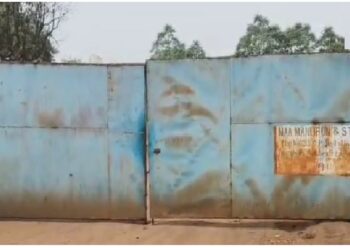RAIPUR (India CSR): The Chhattisgarh State Scheduled Tribes Commission (CGSTC) has revealed serious allegations of forgery in securing clearances for mining in the Hasdeo Arand forest. Investigations into the Parsa coal block indicate that consent documents from local gram sabhas were fabricated to push through approvals. The findings align with long-standing claims by residents who oppose mining in the region, citing environmental degradation, human rights violations, and the undermining of tribal laws.
Hasdeo Arand: A Vital Forest Under Threat
Hasdeo Arand is one of central India’s largest unfragmented forest ecosystems. Known for its rich biodiversity, the forest is home to several protected species and serves as a crucial habitat for wildlife, including elephants. Mining activities in this region have been contentious due to the potential ecological damage and displacement of local communities.
Biodiversity at Risk
A 2019 biodiversity study sanctioned by the Indian government revealed that Hasdeo Arand is home to nine species protected under the Wildlife Protection Act. Further studies, such as the Wildlife Institute of India’s 2021 report, warned of worsening human-elephant conflicts and significant biodiversity loss if mining proceeds.
The Parsa Coal Block
The Parsa coal block, spanning 1,252 hectares, holds reserves of 184 million tonnes of coal with a production capacity of 5 million tonnes annually. It is adjacent to the operational Parsa East and Kente Basan (PEKB) coal blocks and was awarded to Rajasthan Rajya Vidyut Utpadan Nigam Limited (RVUNL) in 2015. The block’s development has faced opposition from residents and activists since its inception.
Forgery Allegations: Inflated Attendance and Fabricated Consent
Irregularities in Gram Sabha Proceedings
The CGSTC investigation uncovered discrepancies in gram sabha records. Attendance numbers were inflated, and the mining proposal was allegedly added to the meeting’s agenda after the discussions had concluded. For example, attendance in Salhi village was increased from 150 to 450, and in Hariharpur, from 95 to 195.
Pressure on Tribal Leaders
The CGSTC report stated that tribal leaders, including sarpanches and gram panchayat secretaries, were coerced into signing fabricated documents. In Salhi village, the proposal for mining was reportedly written in a government rest house, and not during the gram sabha meetings.
Violation of Tribal and Environmental Laws
The affected districts of Surguja and Surajpur fall under the Fifth Schedule of the Constitution, which grants special protections to tribal land. Under the Panchayats (Extension to Scheduled Areas) Act (PESA), land cannot be acquired without the consent of gram sabhas. The CGSTC findings indicate that these legal provisions were grossly violated.
Community and Activist Response
Protests and Public Backlash
The Chhattisgarh Bachao Andolan (CBA), an activist group, has launched a statewide campaign to raise awareness about the findings. The group plans to distribute copies of the Commission’s report across 10,000 villages and submit one lakh public petitions during the winter assembly session, demanding the cancellation of clearances.
Escalation of Violence
Tensions have escalated as trees were felled in the Parsa coal block, despite the ongoing dispute. Violent clashes between residents and police have occurred, highlighting the community’s deep resentment toward the mining project.
Legal and Governmental Implications
Call for Accountability
The CGSTC report has urged the cancellation of mining clearances and recommended criminal action against guilty officials and the mining company. Former legal advisor to the Union Tribal Ministry, Shomona Khanna, described the findings as “extremely significant” and called on the central government to act.
Pending Action from Authorities
Despite the gravity of the allegations, the district administration, state government, and Union Ministry of Environment have yet to respond to the CGSTC’s recommendations. No new gram sabhas have been convened, leaving the affected communities in limbo.
Environmental and Social Impacts of Mining in Hasdeo Arand
Human-Elephant Conflict
Mining in Hasdeo Arand has the potential to disrupt elephant habitats, pushing them into human settlements and increasing the likelihood of conflict. Experts warn that such displacement could create unmanageable challenges for the state.
Impact on Livelihoods
The forest is a lifeline for tribal communities who depend on it for food, medicine, and livelihood. Mining operations threaten to displace these communities and destroy their traditional way of life.
You Learn
The CGSTC’s findings on forged gram sabha consent have brought to light serious violations of tribal and environmental laws in Chhattisgarh’s Hasdeo Arand region. The controversy over the Parsa coal block underscores the urgent need for transparent governance and adherence to legal frameworks.
The central and state governments must address these allegations swiftly, ensuring accountability and prioritizing the rights of tribal communities and environmental conservation. As protests and public dissent grow, the battle over Hasdeo Arand has become a symbol of the conflict between development and sustainability.
(India CSR)






















